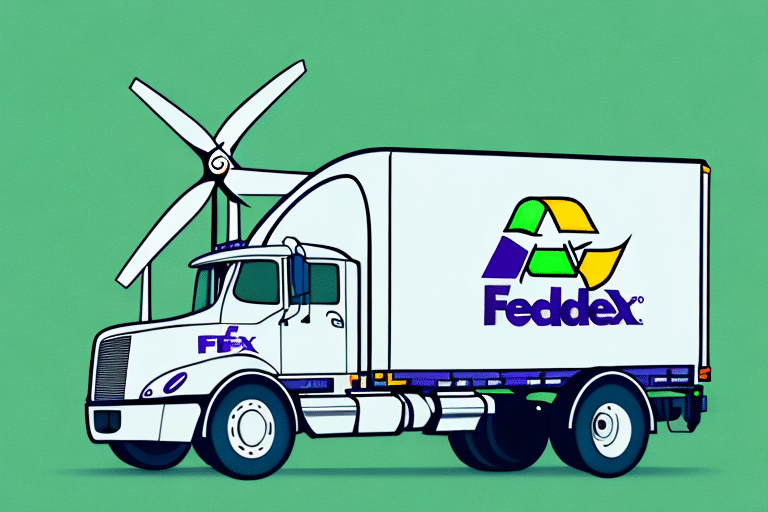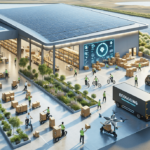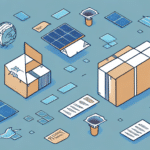How FedEx Is Leading the Way in Fuel Consumption Reduction
FedEx, one of the world's largest shipping companies, has been at the forefront of initiatives aimed at reducing fuel consumption. Recognizing the significant environmental impact of their operations, FedEx has committed to adopting sustainable practices that not only benefit the planet but also enhance operational efficiency and cost-effectiveness. This article delves into FedEx's comprehensive approach to minimizing fuel usage, highlighting the innovative technologies and strategies implemented to achieve their sustainability goals.
Importance of Fuel Consumption Reduction for FedEx
As a global logistics leader, FedEx's reliance on fuel is substantial, making fuel consumption a critical area for environmental and economic considerations. High fuel usage contributes significantly to greenhouse gas emissions, exacerbating climate change and environmental degradation. By reducing fuel consumption, FedEx aims to lower its carbon footprint, comply with international environmental regulations, and meet the growing demand for sustainable business practices.
According to the Environmental Protection Agency, the transportation sector accounts for approximately 29% of total U.S. greenhouse gas emissions. Addressing fuel consumption is therefore pivotal in mitigating the sector's environmental impact.
FedEx's Strategic Goals for Fuel Reduction
FedEx has set ambitious targets to significantly reduce its fuel consumption and associated carbon emissions. These goals are part of a broader sustainability strategy aimed at achieving carbon neutrality by 2040. Key initiatives include:
- Investing in Alternative Fuel Vehicles: Transitioning to electric and hybrid vehicles to decrease reliance on fossil fuels.
- Implementing Route Optimization: Utilizing advanced software to design efficient delivery routes, thereby reducing unnecessary mileage and fuel usage.
- Adopting Sustainable Aviation Practices: Enhancing fuel efficiency in its air fleet through modernized aircraft and alternative fuels.
Innovative Technologies Driving Fuel Efficiency
Electric and Hybrid Fleet Expansion
FedEx has integrated electric and hybrid vehicles into its delivery fleet across major urban centers, including New York City, Paris, and London. These vehicles not only lower fuel consumption but also reduce emissions and noise pollution in densely populated areas.
In 2022, FedEx announced plans to invest $2 billion in carbon-neutral operations by 2040, with a significant portion allocated to expanding their electric vehicle fleet (FedEx Sustainability Report).
Advanced Fuel-Efficient Engines
Beyond vehicle electrification, FedEx has incorporated advanced engine technologies in its aircraft and ground vehicles. Features such as automatic start/stop systems, aerodynamic designs, and energy-efficient engines contribute to substantial fuel savings.
For instance, the introduction of the GE CF6 jet engines in FedEx's fleet has improved fuel efficiency by up to 15%, according to industry reports (GE Aviation Press Release).
Environmental and Economic Benefits
Reducing fuel consumption yields multiple benefits for FedEx and its stakeholders:
- Lower Operational Costs: Reduced fuel usage translates to significant cost savings, enhancing profitability.
- Enhanced Sustainability: Lower emissions contribute to FedEx's commitment to environmental stewardship and carbon neutrality.
- Improved Customer Satisfaction: Customers increasingly prefer companies with strong sustainability practices, leading to enhanced brand loyalty.
According to a McKinsey report, companies that invest in sustainable practices can achieve a 10-20% increase in profitability over time.
Challenges in Reducing Fuel Consumption and FedEx's Solutions
Despite significant progress, FedEx faces several challenges in its fuel reduction journey:
High Costs of Alternative Technologies
The initial investment required for electric and hybrid vehicles, as well as advanced engine technologies, is substantial. To mitigate these costs, FedEx collaborates with manufacturers and energy providers to develop cost-effective alternatives and secure favorable financing options.
Infrastructure Limitations
Expanding the infrastructure necessary to support electric vehicles, such as charging stations, is critical. FedEx is actively investing in building proprietary charging networks and partnering with local governments to enhance public infrastructure.
Additionally, FedEx collaborates with organizations like the U.S. Department of Energy to support the development of nationwide charging infrastructure.
Operational Constraints
Integrating new technologies into existing operations can disrupt efficiency. FedEx addresses this by implementing pilot programs to test and refine new technologies before full-scale deployment, ensuring smooth transitions and minimal operational disruptions.
Lessons for the Shipping Industry and Future Outlook
FedEx's proactive approach to fuel reduction serves as a model for the shipping and logistics industry. Key takeaways include:
- Commitment to Sustainability: Long-term dedication to environmental goals can drive innovation and competitive advantage.
- Investment in Technology: Embracing advanced technologies is essential for achieving significant fuel reductions.
- Collaborative Partnerships: Working with stakeholders, including governments and technology providers, enhances the effectiveness of sustainability initiatives.
Looking ahead, the shipping industry is expected to continue its shift towards sustainability, driven by regulatory pressures and consumer demand. Emerging technologies such as autonomous ships and artificial intelligence-driven logistics optimization promise further reductions in fuel consumption and emissions (International Energy Agency Report).
FedEx is well-positioned to lead this transformation, leveraging its resources and expertise to foster a more sustainable and efficient logistics ecosystem.
Conclusion
FedEx's comprehensive strategy to reduce fuel consumption highlights the company's commitment to sustainability and operational excellence. Through investments in alternative fuels, advanced technologies, and strategic partnerships, FedEx is not only mitigating its environmental impact but also setting a benchmark for the shipping industry. As global efforts to combat climate change intensify, FedEx's initiatives provide a roadmap for other companies striving to achieve similar sustainability goals.




















